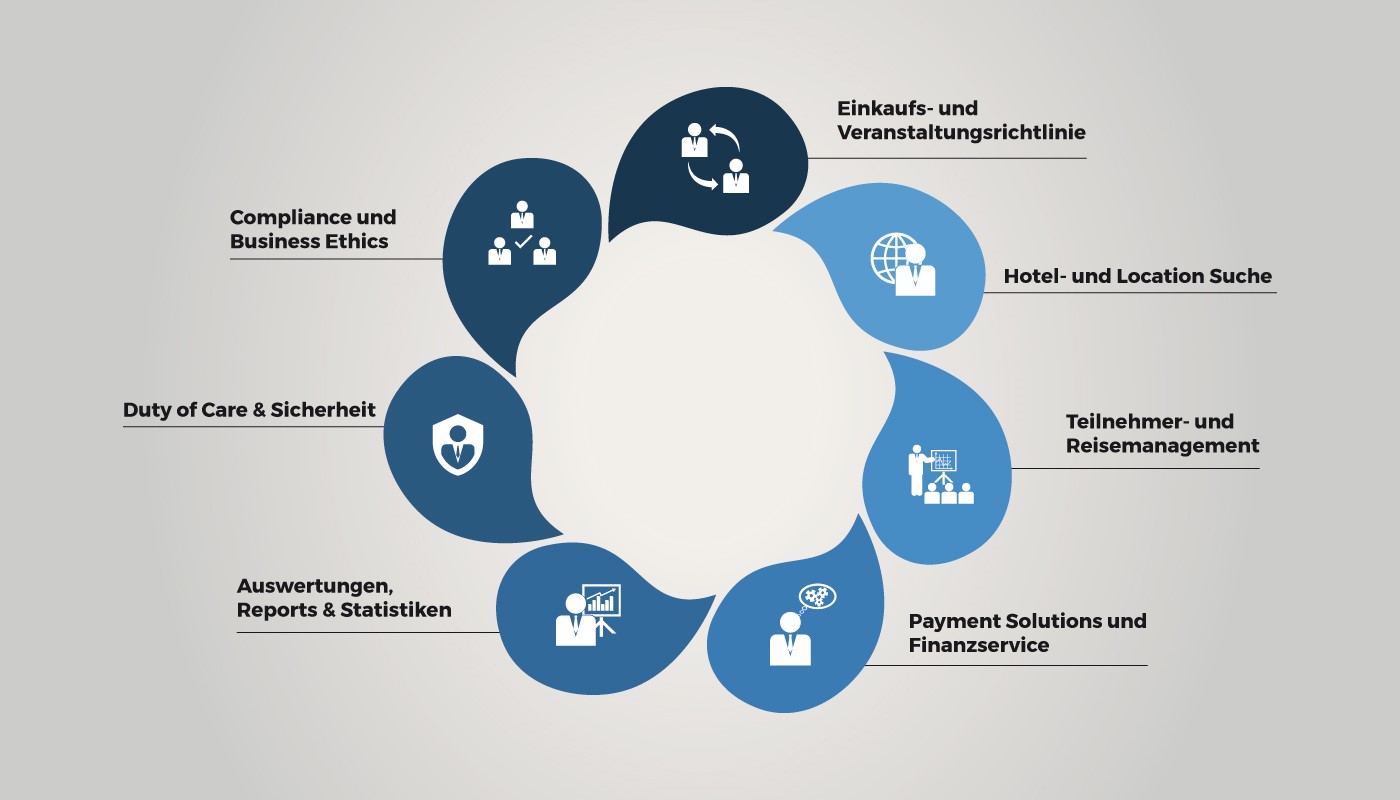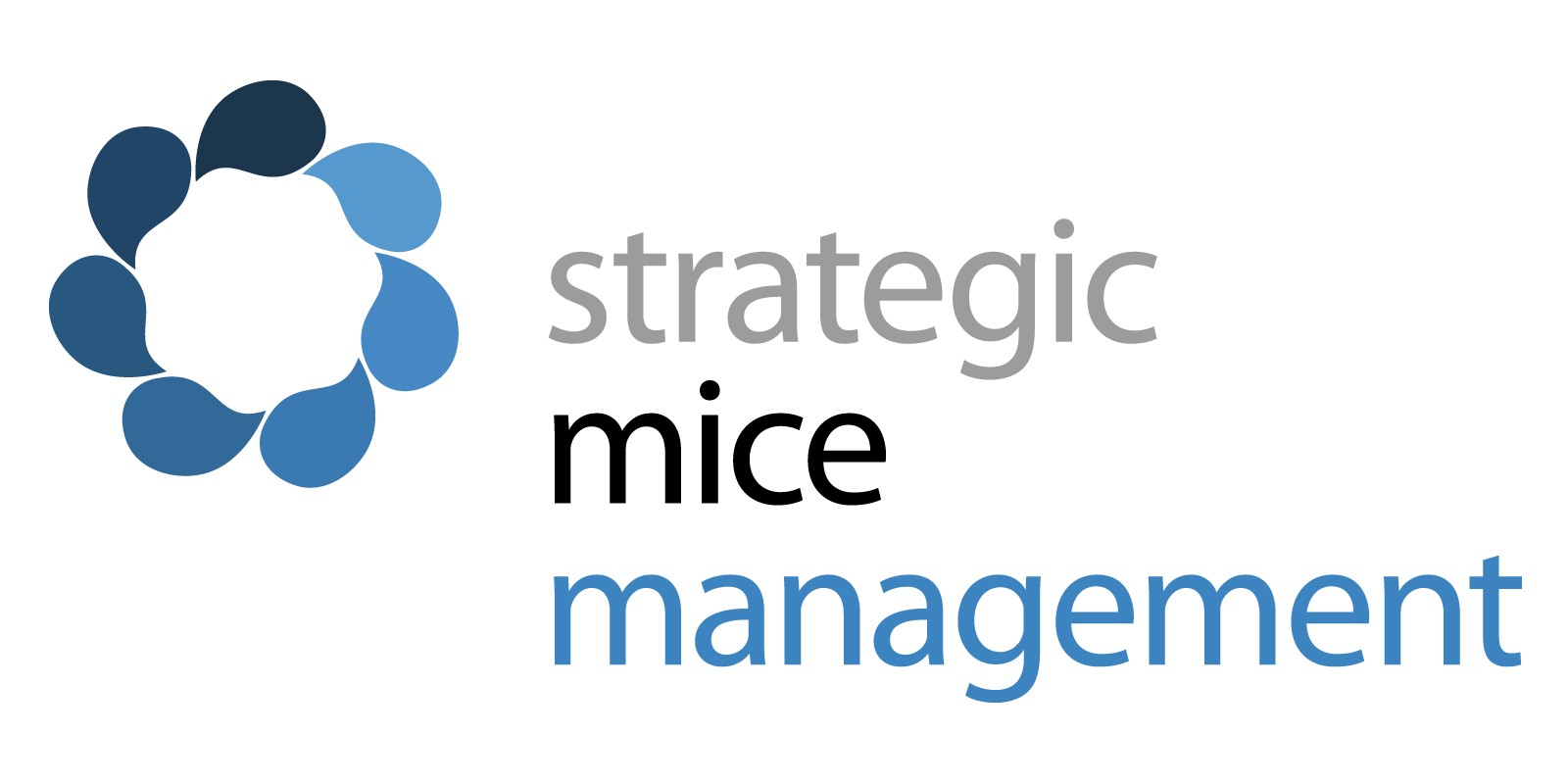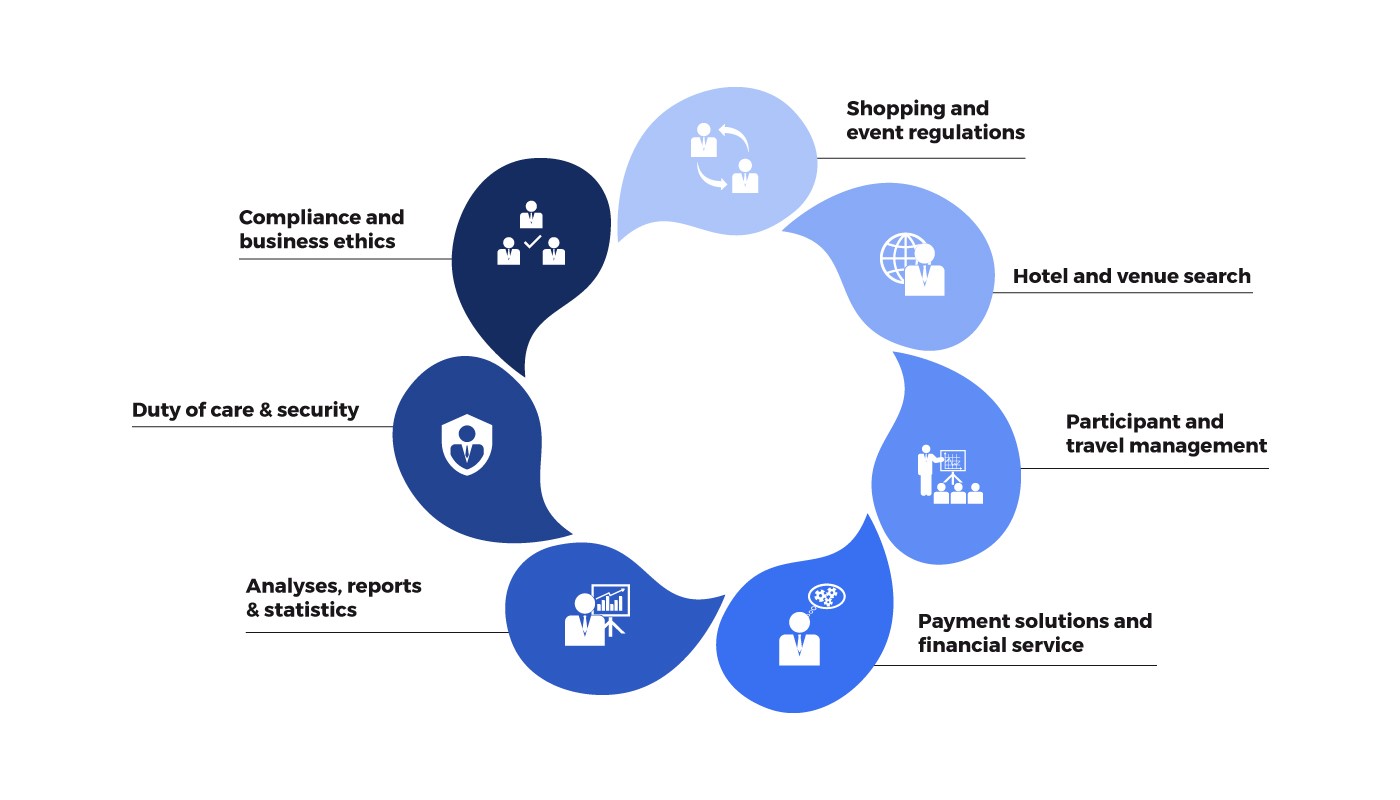Each individual area of strategic MICE management can be viewed and optimised separately. The greatest and most lasting success is achieved when all areas interlock like cogs, and everyone maintains the processes.
Shopping and event regulations
Have you defined the standards that need to be upheld when planning seminars or conferences? No? Why not?
We recommend defining and introducing shopping and event regulations which benefit all those involved:
Standardised cancellation conditions
Your staff can cite and rely on cancellation conditions that have been checked and approved by the Purchases and Legal departments. This reduces unnecessary queries or clarifications for event organisers and other persons involved.
At the same time, the company benefits from the fact that standardisation reduces costs for things like cancellations and no-shows.
Purchase order (PO) and value limits
Can anyone book a conference or seminar for any price? Or have value limits been defined? Depending on the company philosophy, expenses and costs can be decided on and determined beforehand. Some companies only work with POs and value limits, while other companies do away with these completely, putting the respective conference planners in charge of handling expenses sensitively.

Hotel and venue search
When searching for hotels and venues, it’s not just about finding the right room for the meeting. It also involves taking into account many aspects to ensure costs can be saved even during this search and selection stage. These aspects can include:
- A detailed definition of needs
- An assessment of whether a trade fair or conference is being held in the city or region at the time.
- Booking preferred hotels in order to simplify price negotiations in future.

Participant and travel management
How does your participant invitation process work? And how are trips planned?
This area of strategic MICE management offers great potential for saving – not only in terms of direct trip costs, but also for indirect costs associated with each participant’s time spent on planning and organising the trip. A lot can be optimised and standardised through defined processes. From suggestions for easy destination access to entries in the Outlook calendar.

Payment solutions and financial service
How often are the bills issued by booked service providers, such as hotels or venues, correct? It’s not just about getting the billing address right. Have all services been properly charged as per the contract and order? Has the service provider properly applied the event conditions for cancellation costs and no-shows? And last but not least, have the tax aspects been factored in for correct accounting?
It important that bills are checked at both a factual and technical level to ensure they can be properly processed and recorded by the Accounts department.
Do you watch out for potential non-cash benefits in the bill, which have to be treated differently for tax?
There are many points and details to bear in mind to ensure bills and accounts pass audits and checks.

Analyses, reports & statistics
Can you say how many events or conferences your company holds every year at the push of a button? And what the expenses for these events are? And the cities and hotels in which most of these conferences are held?
Defined processes and structured data-recording enable versatile analysis of data relating to your events and conferences. You can use the statistics to reduce expenditure and optimise costs for the mid to long term.

Duty of care & security
Do you know when each event is held, and where? And which of your staff members are attending? Daily hazards and risks mean it is the company’s responsibility to know, at all times, where its staff are.
The security of the event itself is another aspect. Have all relevant aspects been taken into account? For example, whether the size of the room is permitted for the number of participants. Or if escape routes are wide enough?
Anyone who makes the necessary arrangements beforehand will be well prepared for the worst case scenario, and will be able to rely on solid risk management.

Compliance and business ethics
Compliance is a hot topic. Some companies have very strict rules, while others provide more leeway, so to speak. The aim of compliance rules is to prevent legal breaches such as corruption. It is important to make both staff and service providers aware so that the respective compliance regulations can be upheld.
Business ethics or corporate social responsibility also always crop up in this context – have society’s moral and ethical expectations have been taken into account, e.g. upholding the minimum wage act, non-discrimination, and refraining from engaging in child labour.
Incorporating strategic MICE management means factoring in the company’s internal rules and principles right from the service provider’s initial enquiry.



 austria
austria
 switzerland
switzerland


